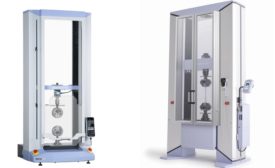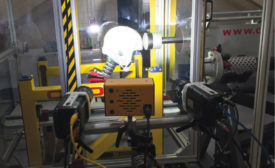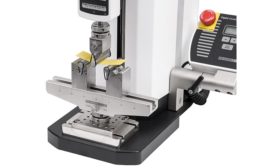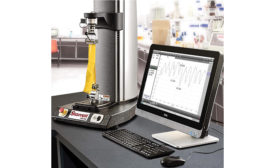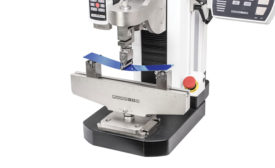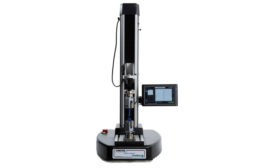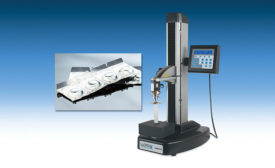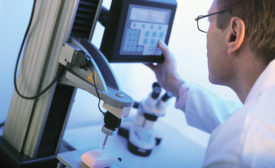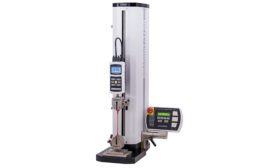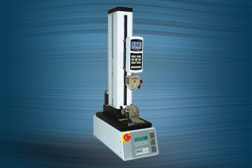Home » force testing
Articles Tagged with ''force testing''
A look at flexural test methods and ASTM D790
Read More
High-Speed Cameras Help Digital Image Correlation Show Its Strength
Measuring the stress or strain that results from very fast phenomenon requires high-speed cameras.
June 1, 2017
The Universality of a Universal Testing Machine
A staple of quality control laboratories around the world, a UTM is an indispensable asset to quality and engineering professionals.
April 1, 2017
The Meaning of Force in Modern Metrology
Metrology specialists at Starrett explain how force measurement plays into “everyday ergonomics.”
December 1, 2016
Compression Force Testing: Why and How
Effective compression force testing helps avoid quality problems down the road.
November 1, 2016
Force Testing
Single-column force testers offer practical and affordable force testing solutions.
August 1, 2016
Quality 101
Force Gages 101
A force gage is an invaluable tool for a range of applications
November 6, 2013
Stay in the know with Quality’s comprehensive coverage of
the manufacturing and metrology industries.
eNewsletter | Website | eMagazine
JOIN TODAY!Copyright ©2024. All Rights Reserved BNP Media.
Design, CMS, Hosting & Web Development :: ePublishing
